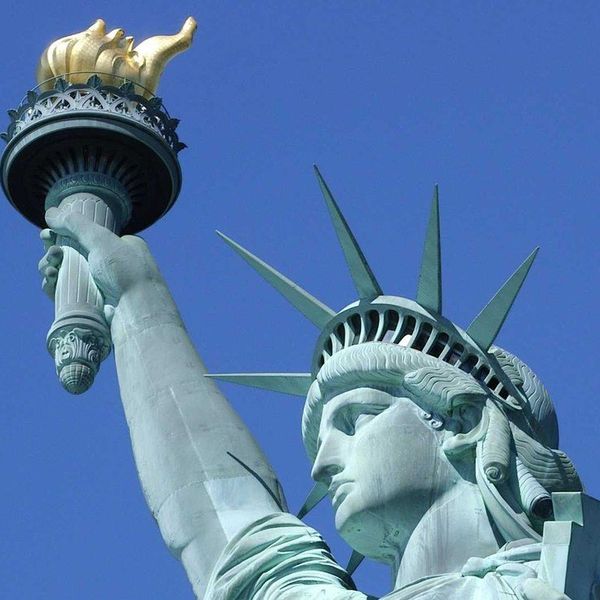As I walked through the Holocaust Museum in Washington D.C. in June on a family vacation, I came across a sign tucked away in the back part of a hallway that explained what world leaders were doing about the increasing “Jewish Problem” during the 1930s. Little did I know that just months later recent events would remind me of what it said.
By 1938, twenty-five percent of German Jews had left the country-an amount of people totaling to 150,000. However, the stigma against Jews prevailed in most countries. In fact, Adolf Hitler called them criminals, and quite frankly, it wasn’t too far off of what the rest of the world thought. The Germans blamed the Jews for the economic troubles of the 1930s. The French didn’t want them to come in and take the precious few jobs available. And the Americans felt threatened by the growing Jewish Power. Here is what Americans thought of Jews and other refugees seeking help from the United States.
The sign I found at the Holocaust Museum talked about the Évian conference of 1938. Delegates from 32 countries met at Evian-les-Bains, France, to discuss the growing concern. Every country had come up with an excuse to not accept the Jews, including reasons like "as we have no real racial problem, we are not desirous of importing one,” which came from Australia. Only the Dominican Republic offered to take Jews- 100,000 of them to be exact.
Even though President Roosevelt called the conference to order, he didn’t even care enough to send an official State delegate to the conference, but his close friend Myron C. Taylor. However, the Jews still held the hope that the United States would lead the world in protecting them.
"The United States had always been viewed in Europe as champion of freedom and under her powerful influence and following her example, certainly many countries would provide the chance to get out of the German trap. The rescue, a new life seemed in reach.”
In the same way that the events in the late 1930s took place, similar events are taking place today. In August, I remember watching the news and seeing thousands upon thousands of people fleeing from Syria. These people are of all social classes, ages, and religions. Quite frankly, they are like any other people who happened to find themselves and their families in the nightmare of a war-torn country.
Go back and look at the pictures of the devastation these people have found themselves in. You might just find out that these people don’t have a home to go to anymore; they don’t have family to give them hugs and kisses anymore like most of us in the United States are so fortunate to have.
Take a minute and read a thought-provoking story written by Kim Hjelmgaard in USA Today called “Walking with Migrants.” I remember a specific post that Hjelmgaard made in August of this year. It was one of the first ones, and probably one of the most inspiring.
“‘Greece!’ they told their mother waiting nervously back home in Syria. ‘We made it to Greece!’” It was two college-aged girls and their younger brother.
They were happy just to make it across the sea into freedom, away from their war torn country. Imagine their mother staying back at home and telling her children that they have to leave for their safety, that they have to leave her behind. They don’t want to do this. They would probably give anything to stay back home. However, there is literally nothing to go back to.
This is why they leave. For survival, they can’t stay. But when they leave, where do they go? Do they make the perilous journey across Europe in hopes that someone somewhere will reluctantly accept them? Do they turn to another Middle Eastern war-torn country and find themselves in the same position they just left? What do they do?
"The United States had always been viewed in Europe as champion of freedom and under her powerful influence and following her example, certainly many countries would provide the chance to get out of the German trap. The rescue, a new life seemed in reach.”
Try inserting “around the world” instead of “in Europe.” So many people view us as the heroes. We are welcoming and accepting. We are the ones who frown upon racism and hatred. So what’s happening now? Why are we condoning the hatred of a group of people who are looking to us for help? They are literally begging to get into our country out of fear of being in Syria. We are the stable country. We are the ones they can depend on. Let’s let them depend on us.























